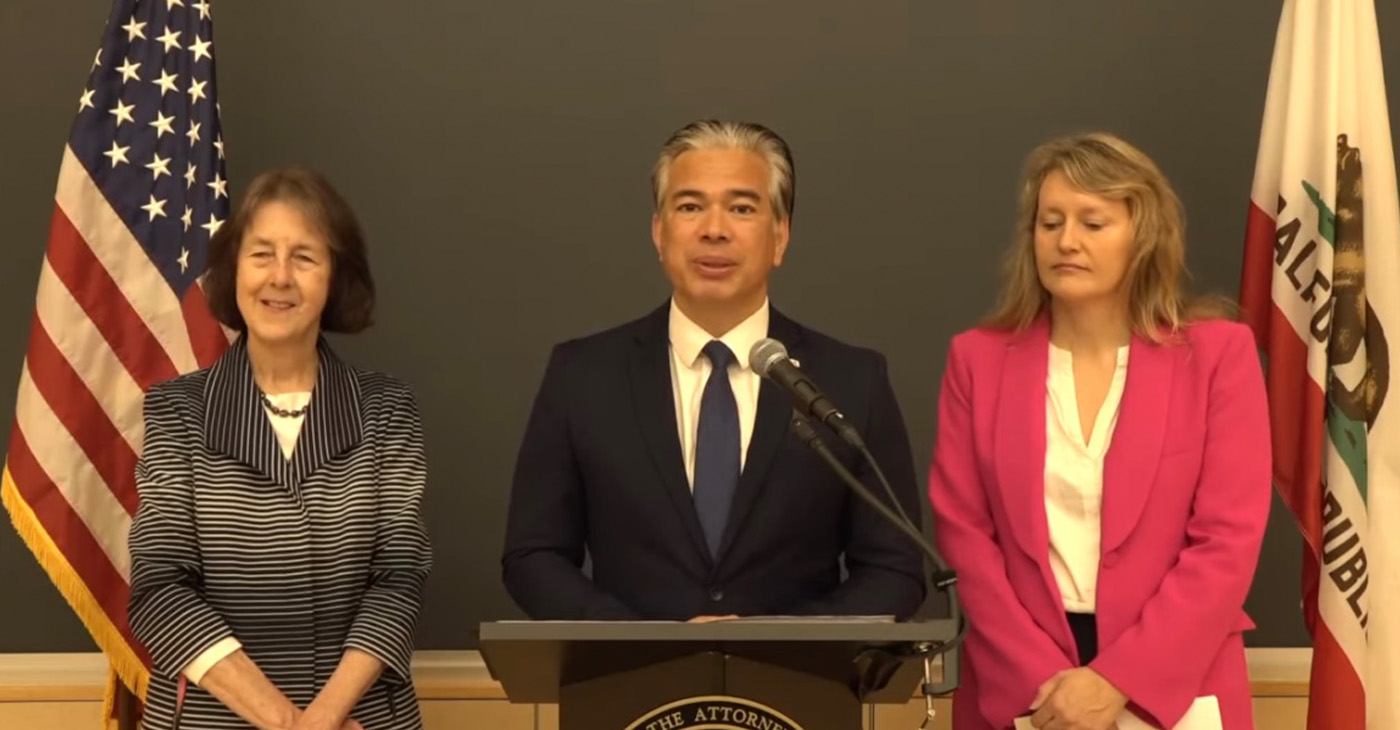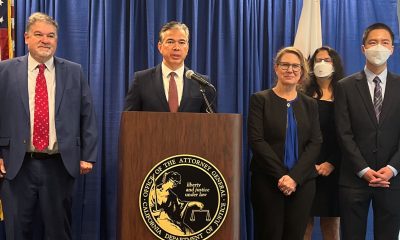Technology
Facebook Buys And Shuts Down Shopping Site TheFind To Boost Commerce In Ads
Josh Constine, TECH CRUNCH
(TechCrunch.com)—Facebook today announced it has acquired personalized shopping search engine TheFind to help improve its commerce ads. TheFind had raised $26 million from Lightspeed and Redpoint since getting off the ground around 2005, but will now be shut down. Some, but not all, members of the team are joining Facebook.
TheFind’s product allowed people to get customized recommendations for products while searching through its massive database of products. A user could enter somewhat generic terms like “black sweater” and then compare prices on black sweaters from a wide array of retailers aggregated by TheFind. They could also discover places to buy their chosen product locally if they want it immediately.
Just last month, Facebook launched a special ad unit designed to highlight specific products a merchant is trying to sell. TheFind could help Facebook better match not just a company to a user, but make sure the products shown in the ads are things they’re likely to buy.
###
Community
Attorney General Rob Bonta, Oakland Lawmakers, Introduce Legislation to Protect Youth Online
At a press conference in downtown Oakland on Jan. 29, Attorney General Rob Bonta joined Sen. Nancy Skinner (D-Berkeley) and Assemblymember Buffy Wicks (D-Oakland) to announce two pieces of legislation designed to protect children online. The bills are Senate Bill (SB) 976, the Protecting Youth from Social Media Addiction Act and Assembly Bill (AB) 1949, the California Children’s Data Privacy Act.

By Magaly Muñoz
At a press conference in downtown Oakland on Jan. 29, Attorney General Rob Bonta joined Sen. Nancy Skinner (D-Berkeley) and Assemblymember Buffy Wicks (D-Oakland) to announce two pieces of legislation designed to protect children online.
The bills are Senate Bill (SB) 976, the Protecting Youth from Social Media Addiction Act and Assembly Bill (AB) 1949, the California Children’s Data Privacy Act.
Skinner authored SB 976, which addresses online addiction affecting teenage users, while Wicks’s bill, AB 1949, takes on big tech by proposing data privacy and children rights protections.
“Social media companies unfortunately show us time and time again that they are all too willing to ignore the detriment to our children, the pain to our children, the mental health and physical challenges they face, in order to pursue profits,” Bonta said.
SB 976 would allow parents to control the nature and frequency of the content their under-18-year-old children see on social media. Notifications from social media platforms would also be paused from midnight to 6 am and controls would allow parents to set time limits on their children’s usage based on their discretion.
Skinner stated that the longer that kids are on their phones during the day, the higher the risk for depression, anxiety and other related issues.
The bill would also push to get rid of addictive media that is harmful for young women and girls, specifically image filters that mimic cosmetic plastic surgery.
Bonta and 33 other attorney generals had previously filed a lawsuit against Meta, owner of the popular social media applications Instagram and Facebook. The filing claims that the company purposefully uses algorithmized content that harms younger audiences.
“Social media companies have the ability to protect our kids, they could act, but they do not,” Skinner said.
The Child Data Privacy Act would strengthen existing protections for data privacy under the California Consumer Privacy Act (CCPA). The lawmakers argue that the law does not have effective protection for those under 18 years old.
Wicks stated that the bill would forbid businesses from collecting, using, sharing, or selling personal data of anyone underage unless they receive informed consent, or it becomes necessary for the purpose of the business.
Wicks added that the acts would make it so that a search on the internet like “How do I lose weight?” would not result in dieting pill advertisements targeting youth, which, some experts report, could be harmful to their mental and physical health.
“In a digital age where the vulnerabilities of young users are continually exploited, we cannot afford to let our laws lag behind, our children deserve complete assurance that their online experience will be safeguarded from invasive practices,” Wicks said.
Supporters of the two acts say they have gained bipartisan support issue, but the authors and Bonta expect them to be met with pushback from the affected companies.
#NNPA BlackPress
Unleashing the Power_ Discover the The Thrills…F-TYPE Convertible
Performance & Handling Powered by a robust 5.0 Liter Supercharged 8 Cylinder Gas Engine, the F-Type R75 doesn’t just purr; it roars with a mighty 575 horsepower and 516 lb-ft of torque. Coupled with an 8-speed Automatic Transmission, the car offers an exhilarating drive that is both fast and smooth. The All-Wheel Drive system ensures […]
The post Unleashing the Power_ Discover the The Thrills…F-TYPE Convertible first appeared on BlackPressUSA.

Performance & Handling
Powered by a robust 5.0 Liter Supercharged 8 Cylinder Gas Engine, the F-Type R75 doesn’t just purr; it roars with a mighty 575 horsepower and 516 lb-ft of torque. Coupled with an 8-speed Automatic Transmission, the car offers an exhilarating drive that is both fast and smooth. The All-Wheel Drive system ensures excellent traction and stability, making it a joy to handle in various driving conditions. The Electric Power Assisted Steering and JaguarDrive Control with Selectable Driving Modes add to the car’s agility, providing a driving experience that is as intuitive as it is thrilling. Additionally, the Adaptive Dynamics and Electronic Active Differential with Torque Vectoring by Braking enhance the car’s responsiveness, making every turn a testament to its engineering prowess. Unique to AutoNetwork.com.
with Selectable Driving Modes add to the car’s agility, providing a driving experience that is as intuitive as it is thrilling. Additionally, the Adaptive Dynamics and Electronic Active Differential with Torque Vectoring by Braking enhance the car’s responsiveness, making every turn a testament to its engineering prowess. Unique to AutoNetwork.com.
Like us on and share https://www.facebook.com/autonetwork
#AutoNetwork
#AutoNetworkReports
Subscribe to our channel now for more videos.
Twitter http://www.twitter.com/liveautos
LinkedIn http://www.linkedin.com/in/autonetwork
Coupons Offers and Deals https://www.couponsoffersanddeals.com/
The post Unleashing the Power_ Discover the The Thrills…F-TYPE Convertible first appeared on BlackPressUSA.
#NNPA BlackPress
Elevate Your Ride…
Join us for a virtual car’s best-detailed walkaround of the sleek and stylish 2024 Jaguar F-TYPE AWD convertible. Get an up-close look at the exterior design, interior features, and performance capabilities of this luxury sports car. From its powerful engine to its advanced technology, this video will give you a comprehensive overview of what makes […]
The post Elevate Your Ride… first appeared on BlackPressUSA.

Join us for a virtual car’s best-detailed walkaround of the sleek and stylish 2024 Jaguar F-TYPE AWD convertible. Get an up-close look at the exterior design, interior features, and performance capabilities of this luxury sports car. From its powerful engine to its advanced technology, this video will give you a comprehensive overview of what makes the F-TYPE AWD convertible stand out on the road. Unique to AutoNetwork.com.
Like us on and share https://www.facebook.com/autonetwork
#AutoNetwork
#AutoNetworkReports
Subscribe to our channel now for more videos.
Twitter http://www.twitter.com/liveautos
LinkedIn http://www.linkedin.com/in/autonetwork
Coupons Offers and Deals https://www.couponsoffersanddeals.com/
The post Elevate Your Ride… first appeared on BlackPressUSA.
-

 Activism4 weeks ago
Activism4 weeks agoOakland Post: Week of March 20 – 26, 2024
-

 #NNPA BlackPress3 weeks ago
#NNPA BlackPress3 weeks agoCOMMENTARY: D.C. Crime Bill Fails to Address Root Causes of Violence and Incarceration
-

 #NNPA BlackPress3 weeks ago
#NNPA BlackPress3 weeks agoMayor, City Council President React to May 31 Closing of Birmingham-Southern College
-

 #NNPA BlackPress3 weeks ago
#NNPA BlackPress3 weeks agoFrom Raids to Revelations: The Dark Turn in Sean ‘Diddy’ Combs’ Saga
-

 #NNPA BlackPress3 weeks ago
#NNPA BlackPress3 weeks agoCOMMENTARY: Lady Day and The Lights!
-

 #NNPA BlackPress3 weeks ago
#NNPA BlackPress3 weeks agoBaltimore Key Bridge Catastrophe: A City’s Heartbreak and a Nation’s Alarm
-

 #NNPA BlackPress3 weeks ago
#NNPA BlackPress3 weeks agoBaltimore’s Key Bridge Struck by Ship, Collapses into Water
-

 Activism3 weeks ago
Activism3 weeks agoOakland Post: Week of March 27 – April 2, 2024



















































